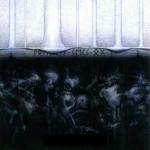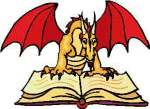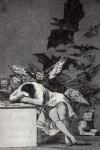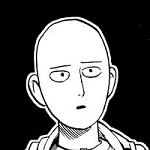It Chiefly revolves around the directive of the authors.
Lots of comparisons are made between ASOIAF and many of the other major fantasy works of our time, the Malazan empire being lesser known but more than equal in scope and depth(IMO). I think its because Fantasy today is championed by authors that present entirely different ways to experience the genre. These comparisons are unavoidable but its apples and oranges because the authors set out to achieve hugely different things, they both break away from the norm but that's where commonality ends.
GRRM wrote his works in a way that builds off a very firm foundation. Open book one of the ASOIAF series and you're reading about things relatively familiar and thus very quickly adjusted to. From here GRRMs key theme and plot mechanizations are plainly visible, subsequent delivery is all important and GRRM is very good at that delivery. He's broken away from normal story-telling by running big events concurrently, keeping things morbid so as to keep you reeling mentally. if plot was represented by cogs then I'd relate the machine behind ASOIF as something alike to a car. Everything is moving at once chasing individual goals that move the story forward.
We know that the disparate activities in the books will come to a head but that isn't really the draw, the draw is a need to answer what happens next? Its a thrilling ride. To this end its interesting to read blogs analyzing the goings on of ASOIAF because it keeps you in touch with the broader perspective because when in the book you're more concerned with each characters next step, you can almost sense GRRM looming over each character with some inexplicable ill fate just waiting to pounce. Its fueled by complex drama but heads to a rather familiar end, the dominion of the throne.
Now the Malazan Empire represents the other side of the coin. In this series book one is...smoke and mirrors. it looks messy and confusing, nothing is set firmly on easily recognizable foundations. To take my previous metaphor the machinations of the story "cogs" resemble a bunch of successive vaults, you need to familiarize yourself with all the levers to crack the story and unlock new layers to different parts of the story.
Mages aren't just mages. Assasins aren't just assasins. Gods are not just Gods. The very fact Gods are readily thrown into book one of the series can make people stumble. in several other Books characters as potent as Anomander Rake or Caladan Brood do not get involved the way they are in MBotF. Heck characters like Quick Ben and Sorry are in all honestly protagonist material and yet they're relegated to the sidelines more often than not. This makes reading Malazan stories frustrating for people that want the story from a set perspective. Its a HUGE block for readers trying the books for the first time.
But then without it we would not get into the depth of the books and thats SE and ICE's goal. The unique, hard to familiarize with, races offer unique perspectives not many other series can offer. Seeing things from the perspective of Icarium, Calm or even Onos T'oolan helps us tap into very unique minds with very singular memories and world views. The characters carry so much history its impossible to read the books and not sit back and muse on the larger goings on. You read exciting scenes sure but the main hunger for MBotF is this desire to get as many vantages as possible of the very large, somewhat blurry, Plot filling the horizon. the same thing we need to step away from in series like ASOIAF we need to zoom in on, read carefully and repeatedly, to fully appreciate in MBotF.
The idea of convergences is the main running theme. Explorations on the gathering of people and the resultant power/potential therein, the ability for that power to draw more power to it colours everything. Every nounce of plot revolves around how this power/potential is exploited, abused, corrected, corrupted, manifest and anticipated. I don't know if this is something that could hold to in-depth analysis as normally in the aftermath of the convergences the lessons conveyed are subjective and carried over to the next one.
-------------------
TL;DR
The same people writing in depth analysis of ASOIAF are smart enough to access and write on the Malazan series, I'm sure several could even. Like you say the goal was more the psychological exploration and as such not many people would want to focus on logistical aspects and stratagems. Anomander Rakes over-arching ideals made his decisions, that's what fascinates me. The apathy of his people governed his hand. Rather than analyzing grand plans I think most Malazan readers would prefer to analyze personality complexities, That might be too much an undertaking as the Power players involved are vast and difficult to pin down because of their alien nature.
This post has been edited by Dolmen 2.0: 03 January 2015 - 04:56 PM

 Help
Help






















